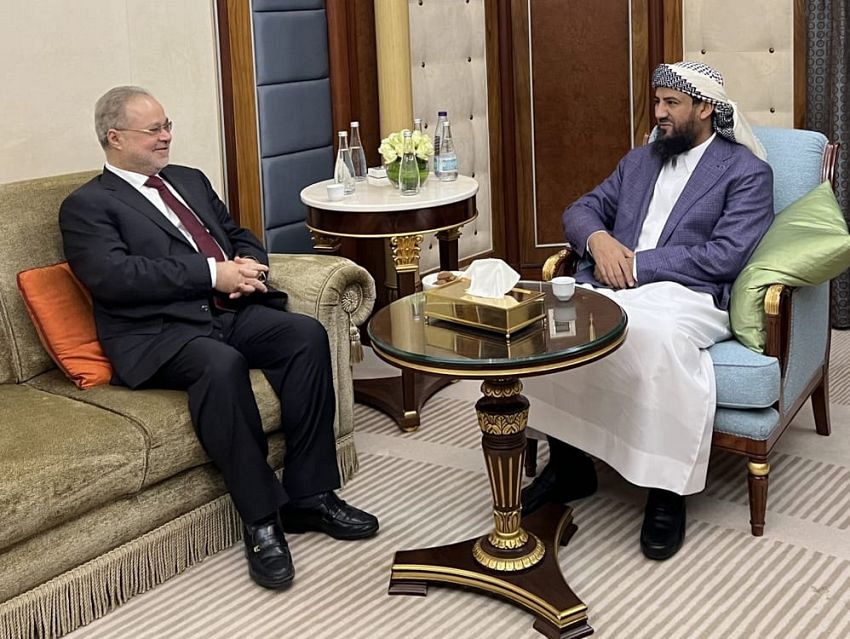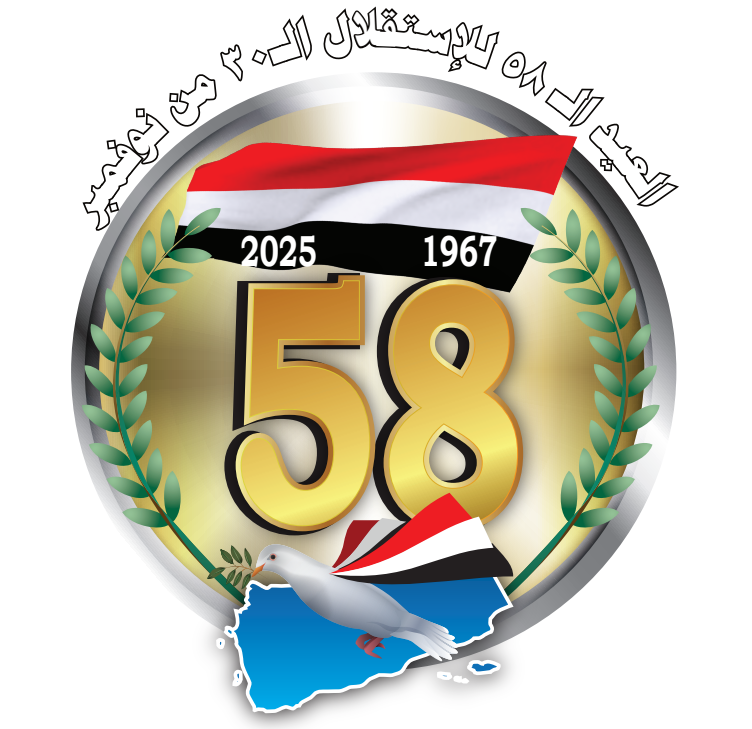
Yemeni Government Welcomes EU Designation of Iran’s Islamic Revolutionary Guard Corps as Terrorist Organization
The Government of the Republic of Yemen has welcomed the decision issued by the European Union to designate Iran’s Islamic Revolutionary Guard Corps (IRGC) as a terrorist organization.

Massive 7.0 Magnitude Earthquake Strikes Alaska, USA
A powerful 7.0 magnitude earthquake struck Alaska, USA, yesterday evening, according to the United States Geological Survey (USGS).

Japan's LNG imports down 1.4 percent
Japan's liquefied natural gas (LNG) imports fell 1.4 percent to 64.98 million tons last year 2025, compared to 2024. according to provisional data released by the Japanese Ministry of Finance today, Thursday.

Paris Saint-Germain temporarily tops the French league after their win against Auxerre
Paris Saint-Germain defeated Auxerre 1-0 in their Ligue 1 match on Matchday 19.
Last Update: ،
2026/01/30
Time
01:54:21
Latest News:
 Chief of the General Staff Discusses Ways to Enhance Defense, Security Cooperation with U.S. and British ..
Chief of the General Staff Discusses Ways to Enhance Defense, Security Cooperation with U.S. and British ..
 Governor of Taiz Discusses with World Food Program Mechanism for Approving, Distributing Food Parcels ..
Governor of Taiz Discusses with World Food Program Mechanism for Approving, Distributing Food Parcels ..
 Presidential Council Member Meets French Ambassador, Discuss Political Development
Presidential Council Member Meets French Ambassador, Discuss Political Development
 Yemen participates in the 2nd Ministerial Meeting of Middle East Green Initiative Council
Yemen participates in the 2nd Ministerial Meeting of Middle East Green Initiative Council
 Prime Minister receives American Ambassador, U.S. Department of State delegation
Prime Minister receives American Ambassador, U.S. Department of State delegation
Latest News:
 Chief of the General Staff Discusses Ways to Enhance Defense, Security Cooperation with U.S. and British ..
Chief of the General Staff Discusses Ways to Enhance Defense, Security Cooperation with U.S. and British ..
 Governor of Taiz Discusses with World Food Program Mechanism for Approving, Distributing Food Parcels ..
Governor of Taiz Discusses with World Food Program Mechanism for Approving, Distributing Food Parcels ..
 Presidential Council Member Meets French Ambassador, Discuss Political Development
Presidential Council Member Meets French Ambassador, Discuss Political Development
 Yemen participates in the 2nd Ministerial Meeting of Middle East Green Initiative Council
Yemen participates in the 2nd Ministerial Meeting of Middle East Green Initiative Council
 Prime Minister receives American Ambassador, U.S. Department of State delegation
Prime Minister receives American Ambassador, U.S. Department of State delegation
Al-Muharrami, Reconciliation Commission officials discuss political developments
[11/10/2022 12:31]
Riyadh – Saba
Member of the Presidential Leadership Council, Abdul Rahman Abu Zara’a Al Muharrami discussed during his meeting today separately with the two Vice-Presidents of the Consultation and Reconciliation Commission, Abdul-Malik Al-Mikhlafi, Akram Al-Amiri, and a member of the Consultation and Reconciliation Commission, Nasr Taha Mustafa, discussed the latest political developments that our country is going through and the government’s positive position on the truce.
The international community's requirement to alleviate the suffering of the people as a bridge to a comprehensive and lasting peace. Al-Muharrami stressed the importance of standing together to face the challenges and end the Iranian-backed Houthi coup.
The member of the Leadership Council said, "The Houthi militias do not care about the affairs of the homeland and the citizen, but they are looking to strengthen their control, and this we will never accept," stressing that harmony in the leadership of the Presidential leadership council and the government prevails at this phase.
For their part, Al-Mikhlafi, Al-Amiri and Nasr Taha stressed the importance of adhering to the positions of legitimacy to end the coup.. praising the position of the Council and the government to deal positively with the international community to accept the truce.
Member of the Presidential Leadership Council, Abdul Rahman Abu Zara’a Al Muharrami discussed during his meeting today separately with the two Vice-Presidents of the Consultation and Reconciliation Commission, Abdul-Malik Al-Mikhlafi, Akram Al-Amiri, and a member of the Consultation and Reconciliation Commission, Nasr Taha Mustafa, discussed the latest political developments that our country is going through and the government’s positive position on the truce.
The international community's requirement to alleviate the suffering of the people as a bridge to a comprehensive and lasting peace. Al-Muharrami stressed the importance of standing together to face the challenges and end the Iranian-backed Houthi coup.
The member of the Leadership Council said, "The Houthi militias do not care about the affairs of the homeland and the citizen, but they are looking to strengthen their control, and this we will never accept," stressing that harmony in the leadership of the Presidential leadership council and the government prevails at this phase.
For their part, Al-Mikhlafi, Al-Amiri and Nasr Taha stressed the importance of adhering to the positions of legitimacy to end the coup.. praising the position of the Council and the government to deal positively with the international community to accept the truce.
Key words:
Reconciliation - government’s - comprehensive - international - Consultation - developments - Presidential - community's - requirement - Commission - Yemeni Government Welcomes EU Designation of Iran’s Islamic Revolutionary Guard Corps as Terrorist Organization
Yemeni Government Welcomes EU Designation of Iran’s Islamic Revolutionary Guard Corps as Terrorist Organization Presidential Council Member Meets French Ambassador, Discuss Political Development
Presidential Council Member Meets French Ambassador, Discuss Political Development  Yemen participates in the 2nd Ministerial Meeting of Middle East Green Initiative Council
Yemen participates in the 2nd Ministerial Meeting of Middle East Green Initiative Council Prime Minister receives American Ambassador, U.S. Department of State delegation
Prime Minister receives American Ambassador, U.S. Department of State delegation Al-Khanbashi discusses with Zindani ongoing efforts to normalize situations
Al-Khanbashi discusses with Zindani ongoing efforts to normalize situations Yemen and France Eye Closer Cooperation In Different Fields
Yemen and France Eye Closer Cooperation In Different Fields Yemen's Economic Future on Agenda as German Diplomat Meets Presidential Council MemberJanuary 29, 2026
Yemen's Economic Future on Agenda as German Diplomat Meets Presidential Council MemberJanuary 29, 2026 Yemen's Ambassador to Bahrain Discusses Developments in Yemen with Foreign Minister
Yemen's Ambassador to Bahrain Discusses Developments in Yemen with Foreign Minister NGO Documents 6,417 Arbitrary Detentions in 2025
NGO Documents 6,417 Arbitrary Detentions in 2025  Saudi Leaders Offer Condolences on Passing of Yemeni Statesman Ali Salem Al-Beidh
Saudi Leaders Offer Condolences on Passing of Yemeni Statesman Ali Salem Al-Beidh


